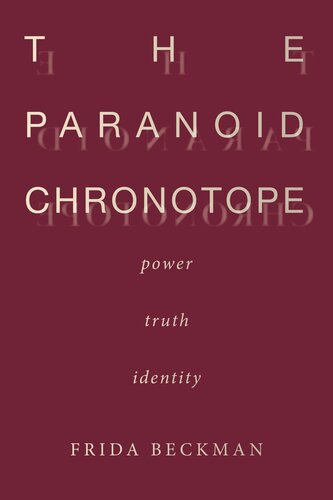

Most ebook files are in PDF format, so you can easily read them using various software such as Foxit Reader or directly on the Google Chrome browser.
Some ebook files are released by publishers in other formats such as .awz, .mobi, .epub, .fb2, etc. You may need to install specific software to read these formats on mobile/PC, such as Calibre.
Please read the tutorial at this link: https://ebookbell.com/faq
We offer FREE conversion to the popular formats you request; however, this may take some time. Therefore, right after payment, please email us, and we will try to provide the service as quickly as possible.
For some exceptional file formats or broken links (if any), please refrain from opening any disputes. Instead, email us first, and we will try to assist within a maximum of 6 hours.
EbookBell Team

4.7
106 reviewsWhy does it seem like our everyday life is shadowed by something menacing? This book identifies and illuminates paranoia as a significant feature of contemporary American society and culture. Centering on what it identifies as three key dimensions – power, truth, and identity – in three different contexts – society, literature, and critique – the book explores and explains the increasing influence of paranoid thinking in American society during the second half of the twentieth century and first decades of the twenty-first, a period that has seen the rise of control systems and neoliberal ascendency.
Inquiring about the predominance of white, male, American subjects in paranoid culture, Frida Beckman recognizes the antagonistic maintenance and fortification of a conception of the autonomous individual that perceives itself to be under threat. Identifying such paranoia as emerging from an increasingly disjunctive relation between this conception of the subject and the changing nature of the public sphere, she develops the concept of the paranoid chronotope as a tool for the theoretical analysis of social, literary, and critical practices today. Investigating twenty-first century paranoid fictions, New Sincerity novels, conspiracist online culture, and postcritique, Beckman shows how the paranoid chronotope constitutes a recurring feature of modern consciousness.